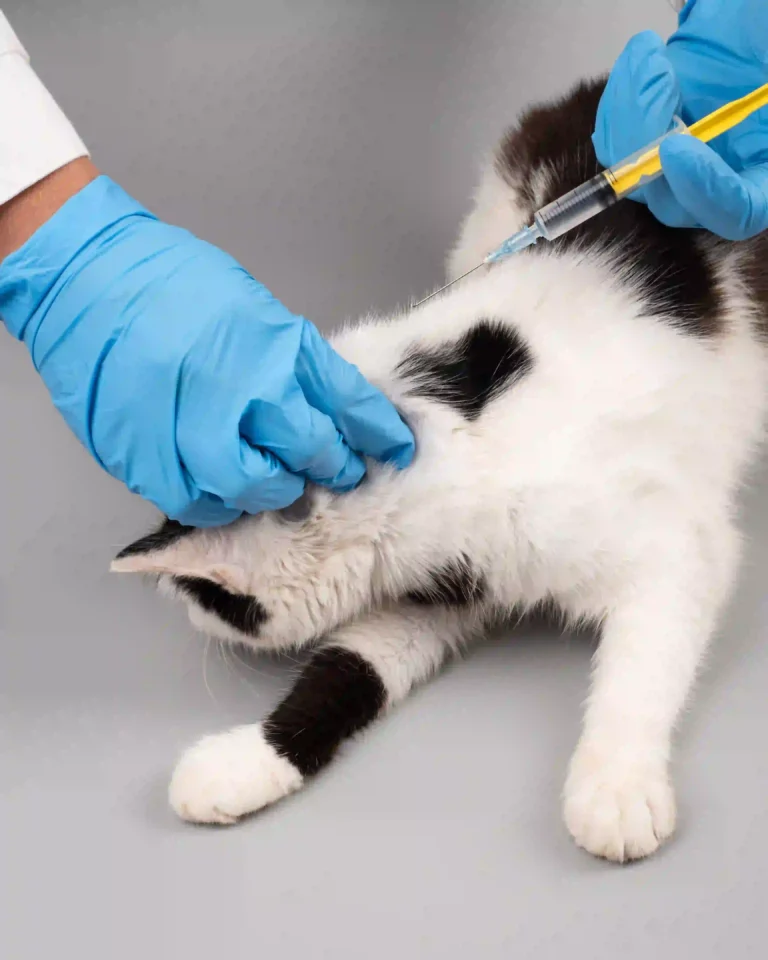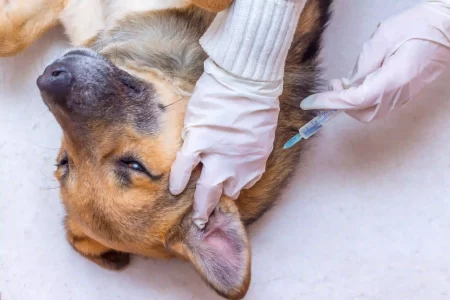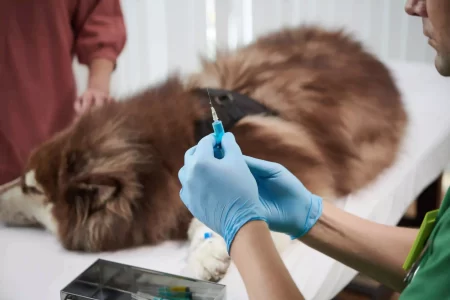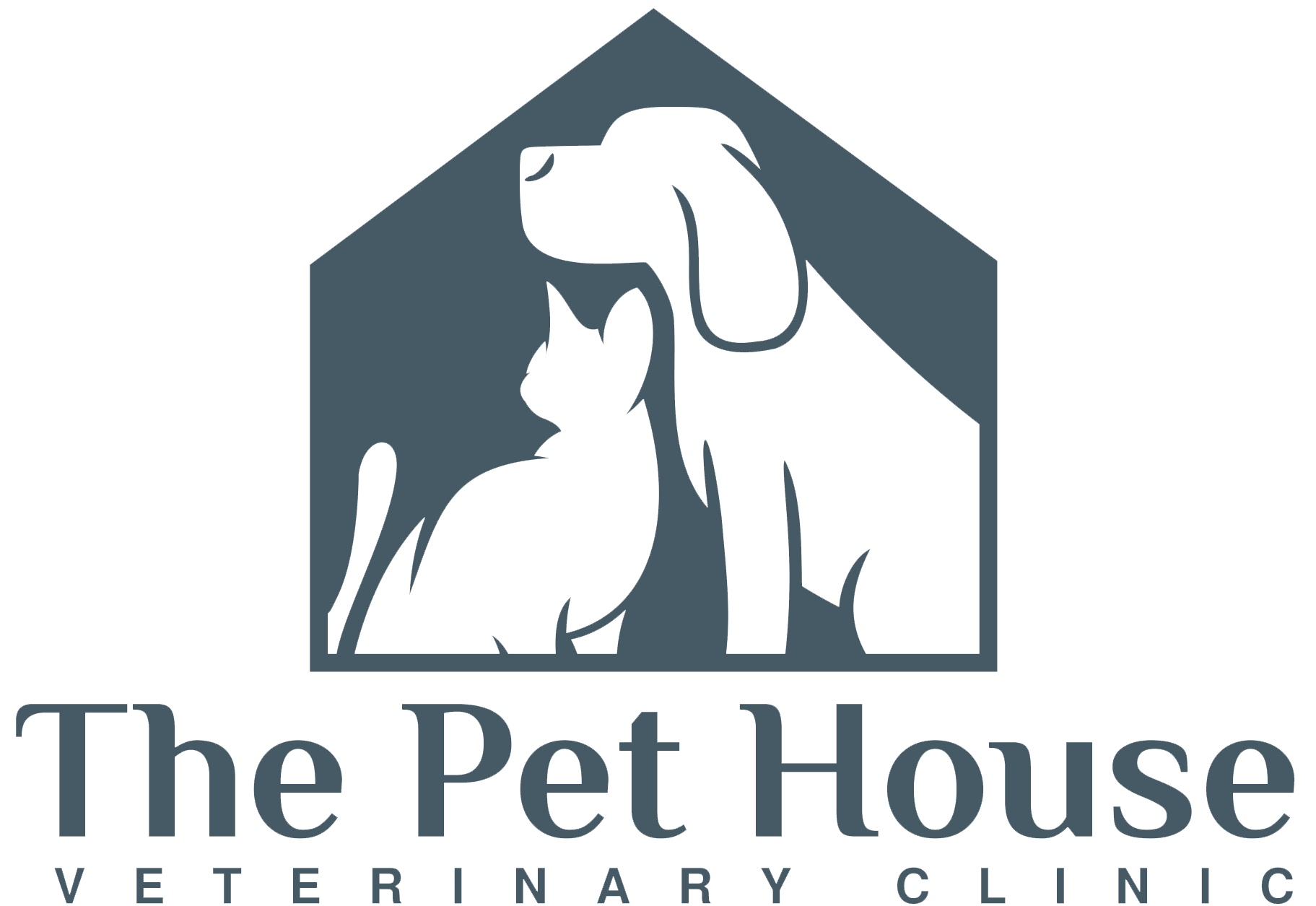What Your Pet Needs at Every Life Stage
Vaccinations are a cornerstone of preventative veterinary care, protecting pets from serious and potentially fatal diseases. Tailored vaccination schedules ensure your pet remains healthy throughout their life, minimizing the risk of preventable illnesses.

Core vs. Non-Core Vaccines
Core Vaccines: These are essential for all pets and include vaccines for diseases like rabies, distemper, and parvovirus. They protect against highly contagious and life-threatening illnesses that pose a risk to both pets and humans. Rabies, in particular, is a zoonotic disease, meaning it can be transmitted from animals to humans, making this vaccine critical for public health.
Non-Core Vaccines: These are recommended based on your pet’s lifestyle and risk factors, such as the Bordetella vaccine for dogs who frequent grooming or boarding facilities. Leptospirosis and Lyme disease vaccines may also be advised for pets in specific geographical areas or those exposed to outdoor environments.
Young pets require a series of vaccinations to build their immunity. Puppies and kittens typically start their vaccine schedule at 6-8 weeks of age, with boosters every few weeks until 16 weeks old. This schedule protects them during their most vulnerable early months and provides a strong foundation for lifelong health. These early vaccinations cover core diseases like distemper, parvovirus, and feline panleukopenia. It’s essential to keep to the recommended
schedule to ensure full protection. Missing doses can leave your young pet at risk of severe illnesses that are often preventable.

Puppy and Kitten Vaccinations
Once the initial series is complete, adult pets need regular booster shots. The frequency varies by vaccine, with some requiring annual updates and others every three years. Core vaccines like rabies and distemper are essential for maintaining immunity, while non-core vaccines may be recommended based on changes in your pet’s activities or environment. For instance, a dog that begins attending daycare may need a Bordetella booster to prevent kennel cough. Your vet will customize a vaccination plan that keeps your adult pet protected as their needs evolve over time.
Adult Pets
As pets age, their immune systems weaken, making them more susceptible to illnesses. Vaccinations remain important but may be adjusted based on their overall health status. Senior pets should also undergo more frequent health checkups to address age-related concerns such as arthritis, kidney disease, or cognitive decline. For older pets with chronic health issues, your vet may recommend spreading out vaccinations or conducting titer tests to measure antibody levels, ensuring they remain protected without unnecessary stress.

Senior Pets
Pets that travel or are boarded often require additional vaccines to protect them in high-risk environments. For example, dogs traveling to certain regions may need protection against canine influenza, while cats staying in boarding facilities may benefit from vaccines against feline leukemia. It’s essential to discuss travel plans with your vet in advance to ensure your pet receives any necessary vaccinations before departure.
Travel and Boarding Considerations
Vaccinating your pets also plays a vital role in community health by controlling the spread of diseases. Vaccines like rabies protect not only your pet but also other animals and humans they may come into contact with. Herd immunity, achieved when most animals in a population are vaccinated, helps prevent outbreaks and ensures safer environments for all pets and their owners.

Public Health and Community Protection
Conclusion
Vaccinations are a vital part of your pet’s healthcare at every stage of life. They protect your pet from preventable diseases, improve their quality of life, and contribute to public health by reducing the risk of zoonotic diseases. By working with your veterinarian to establish a tailored vaccination schedule, you can ensure your pet remains protected and healthy throughout their life. Consistent vaccinations, combined with regular vet visits, create a strong foundation for lifelong wellness and happiness. Staying proactive and informed about your pet’s vaccination needs ensures not only their safety but also the well-being of the broader community.
You can have more information, call us and speek to our vets on 045540701 – 0522047841
